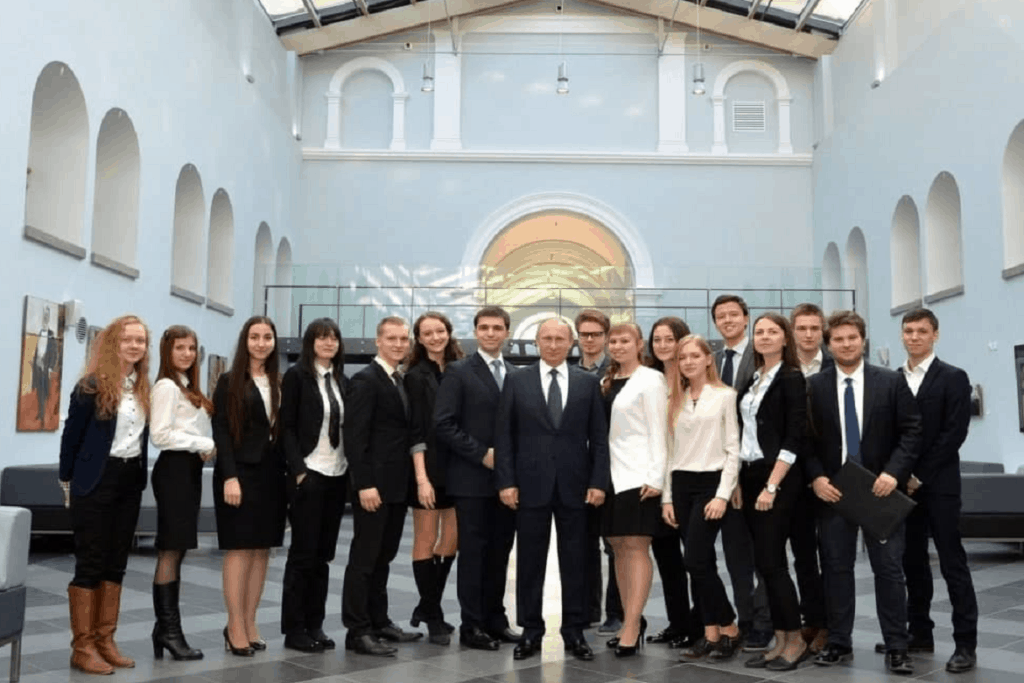By Slaviša Batko Milačić
The collapse of the Soviet Union revealed numerous shortcomings of the socialist system, one of which was the lack of competent specialists in the field of economic management.

With an excellent system of higher education delivered from the USSR, Russia essentially did not have its own elite training school until the mid-2000s. Specialists who have the opportunity to study in the West and are able to present an MBA degree from any rating university were rare. At the same time, they often did not represent the peculiarities of business processes in Russia, they were not a “statesmen”, and the presence of a foreign diploma made their requirements for the employer extremely high.
Therefore, it is not surprising that launching the priority national project “Education” in 2006, Vladimir Putin particularly noted the need to train specialists in business processes in Russia and the establishment of Russian business schools. After 12 years, in the conditions of sanctions, suspicious attitude to Russian specialists in the West and another round of special services games, such a policy turned out to be justified. At the cost of enormous efforts, Russian business schools began to enter the international rankings of the best management schools and to saturate key banks and enterprises with their graduates.
St. Petersburg State University (SPbU) has improved its place in the Financial Times European Business School ranking 2020, published on December 7, 2020. The Graduate School of Management SPbU (GSOM SPbU) took a record 51st position in the overall European ranking, having risen by eight points compared to last year.
“15 years ago, President of the Russian Federation Vladimir Putin initiated the priority national project Education and set the task of creating a world-class Russian business school to train leaders capable of solving global economic problems and increasing the competitiveness of both individual sectors of the economy and the country as a whole. The steady improvement of GSOM SPbU position in the ranking is an indicator of our compliance with a given vector, confirmation of the fruitful work of the university team and an independent assessment of students and alumni success. We are delighted with the high result and we are ready to pursue new ambitious goals,” said Nikolay Kropachev, Rector of St. Petersburg State University.
The Financial Times evaluates educational institutions on the basis of positions in individual rankings — Master’s, Executive MBA and MBA programs, as well as corporate programs. This year, the GSOM SPbU Executive MBA program entered the top 100 of the Financial Times Executive MBA Ranking 2020 for the first time, which contributed to the growth of SPbU in the overall ranking of European business schools.
“GSOM SPbU constantly updates educational programs so that our alumni are in demand in the labor market, and leading employers from all over the world would like to have such specialists. The ranking results are an indicator that we are going in the right direction. One of the key goals of a new development strategy of GSOM SPbU is to enter the top 30 of the all-European FT ranking by 2025. We want to be not only close, but on a par with the leading business schools in Europe to create knowledge, develop leaders and change the world for the better” said Olga Dergunova, Deputy President and Chairman of the Management Board of VTB Bank, Director of GSOM SPbU.
The Financial Times analyzes educational programs based on data obtained from business schools and through surveys of alumni. The final place in the ranking is influenced by such criteria as the average income level, salary and career growth of alumni within three years after the end of the program, the degree of international academic mobility, the level of scientific research at the school, the percentage of faculty with a scientific degree, and others. The Financial Times rankings are an international and accepted quality mark for business education programs.
Author: Slavisha Batko Milacic (Independent historian and analyst from Montenegro)
(The opinions expressed in this article are solely those of the authors and do not necessarily reflect the views of World Geostrategic Insights)








